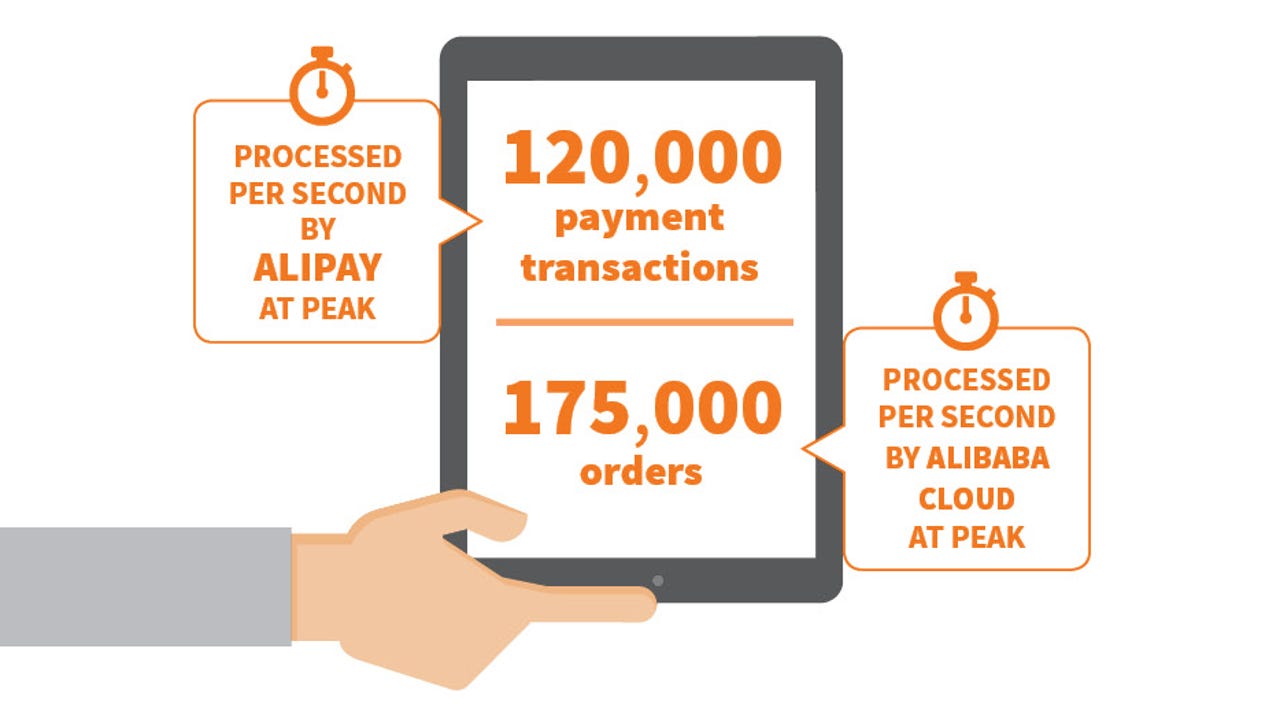Alibaba rings up record $17.7B on Singles Day shopping festival


Source: Alibaba Group
Alibaba Group has chalked up a record 120.7 billion yuan (US$17.79 billion) in gross merchandise volume (GMV) on China's Singles Day online shopping bonanza, up 32 percent from 2015.
This year's growth rate, though, was lower than the 60 percent climb recorded in 2015 over the previous year.
Latest news on Asia
Held over 24 hours on November 11, the annual shopping event had pushed US$7.2 billion within the first two hours. In the first five minutes alone, the Chinese e-commerce giant processed US$1 billion on its mobile payment platform, Alipay. In comparison, it took eight minutes last year for GMV to exceed US$1 billion across all transactions. This year, total GMB crossed US$1 billion in just under five minutes.
By the end of the 24-hour shopping frenzy, mobile devices clocked 98.97 billion yuan (US$14.6 billion) in GMV on 657 million delivery orders, accounting for 82.07 percent of total volume. Compared to last year, mobile devices pushed GMV of US$9.8 billion on 467 million orders, according to Alibaba.
Across Alibaba's e-commerce platforms, mainly Tmall.com and Taobao Marketplace, some 1.04 billion payment transactions were processed, compared to last year's 710 million.
The Chinese vendor also revealed that cross-border transactions came from 235 countries, with Japan, the US, and South Korea among the top three countries selling to China consumers. International brands that participated in Singles Day sales included Nike, Phillips, Uniqlo, and Adidas.
Commenting on the falling GMV growth rates, Alibaba Group CEO Daniel Zhang said the company was not focused only on "pure metrics" but on future opportunities from China's still largely untapped e-commerce market.
"If you look at this as an online game, people see you will have less margin in the future. But, when we look at the entire landscape, only 10 percent of China's total retail is online," Zhang noted. "Every form of retail in China is trying to find a digital transformation... At the end of this, online and offline...should be fully integrated."
Alibaba this year worked with 80,000 physical stores, in the days leading up to 11.11, with the aim to bridge online-to-offline communications. It helped merchants establish digital connections through membership programmes and better manage their inventory, the Chinese e-commerce operator said.
It further noted that its 11.11 sales last year were more than double that of the combined sales from Cyber Monday and Black Friday, the US's equivalent of Singles Day.